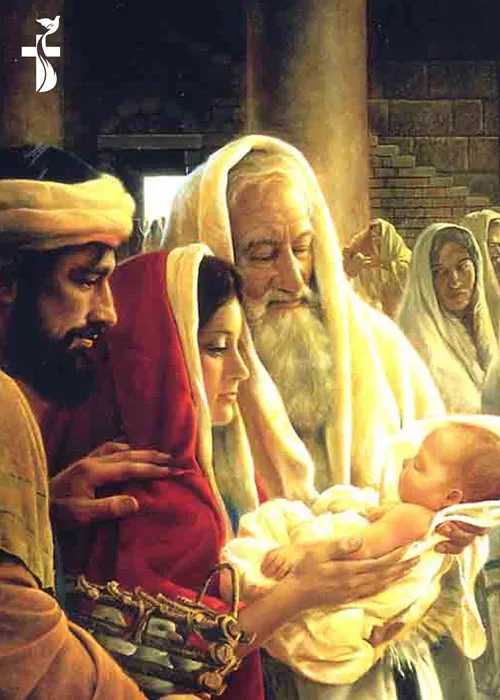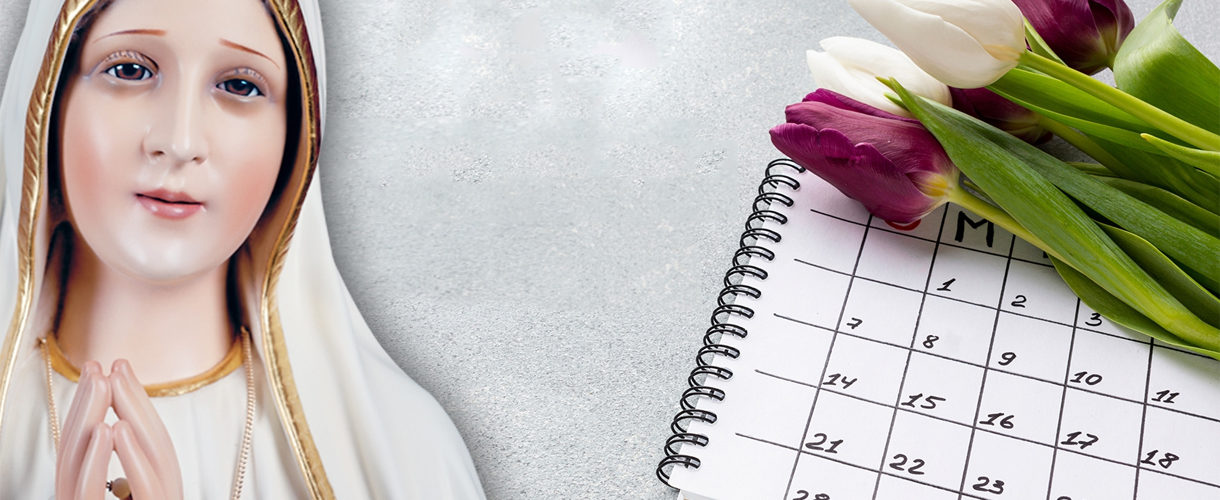
Purification Of Our Lady
Country :
Year :
Besides commemorating the presentation of Christ in the Temple, this day has another meaning, for it is called Candlemass Day. The candle is one of the most widely used sacramentals in the Church; one blessed in a special Mass.
We use candles at Baptism, at Mass and other church services, at the ordination of a priest, the consecration of a bishop, at Easter, at Christmas to signify the coming of Christ. Two blessed candles should be in every home, to use in times of sickness, death, storms and calamities.
In the blessing of candles the Church reminds us that the candles signify light; they are blessed for the service of men, for health of body and soul, for those who desire to carry them in their hands with honor. Christ, the true Light and Fire of Charity, is asked to bless these candles; to dispel the darkness of “night”, to free us from the blindness of vice and to discern what is pleasing to Him and profitable for our salvation.
On the Feast of Mary’s Purification, we greet her with lighted candles—shining with faith and understanding, burning with love and zeal, as Sion welcomed Christ the King; today we go to Christ through Mary, to Christ, the new Light that gives Faith, Hope and Charity to us all.
The two-fold Jewish rites to which the Holy Family submitted on this occasion were the legal purifying of the mother after childbirth and the offering of the first-born male child to the Lord. These laws were not meant for them, but all through life, they showed reverence for the Father’s Law buy fulfilling its obligations, and so the Mother submitted to the Purification in all humility. Angels beheld in wondering awe what was the greatest event the Temple had ever witnessed. It was nothing less than the second coming of the Lord to His Temple, which the prophets had foretold. At the Presentation, God the Son made Man took possession of the Temple built for His Father’s glory, and so ratified the worship which is offered to God in sacred courts, churches.
This simple ceremony is the link between the mystery of the Incarnation and the Redemption; here the Savior renews the oblation of Himself; “Sacrifice and oblation Thou wouldst not; but a body Thou hast fitted to me. Then, I said: ‘Behold, I come: in the head of the book it is written of me that I should do Thy will, O God’”.
Jesus really begins His Passion in this mystery of the Presentation; and so, too, Mary begins her dolors. It is by Mary’s hands that Jesus makes the oblation which is the prelude to His Sacrifice. We reckon the Presentation among the joyful mysteries, but it is also first in place among Mary’s Sorrows. Simeon enlightened by the Holy Spirit, understood the mystery and so, too, did Mary. After his first transports of joy at seeing the Messiah, he blessed them and said to His Mother, “Behold this Child is set for the fall and the resurrection of many in Israel, and for a sign which shall be contradicted, and thy own soul a sword shall pierce, that out of many hearts, thoughts may be revealed.” This prophecy reminds us that Mary is always to be associated with the destiny of Jesus, the one solitary partner of His lot, singled out to suffer with Him. Heresies that pierced the Son have transpierced the Mother. The early Church guarded the doctrines of Jesus by defining Mary’s titles; today those who repudiate the honor of Mary, turn from the Son also; in the mind of Satan as in the mind of the Church, the honor of Son and Mother go together
This feast reminds us how intimately Mary is associated with her Son in the work of Redemption. We welcome Her Child to our hearts with love and faith, we bless the Mother, too; for she “not spared her life by reason of the distress and tribulation of her people, but has prevented our ruin in the presence of our God”.



